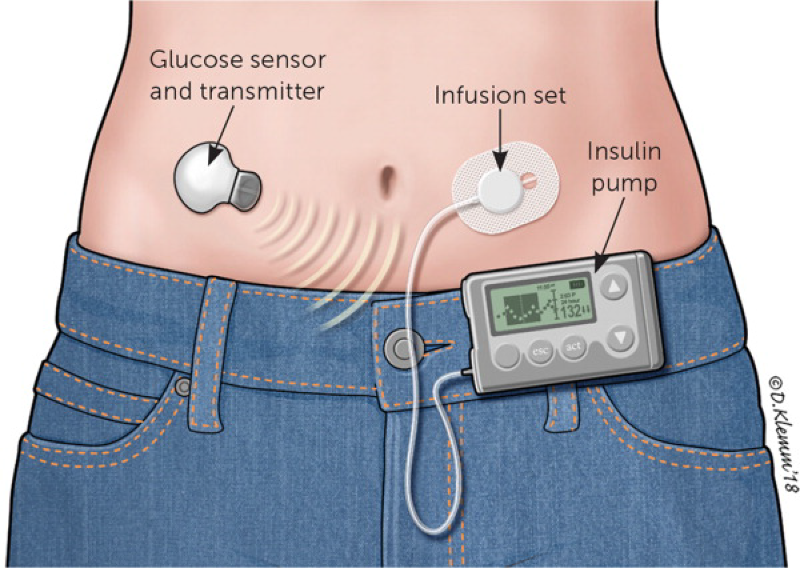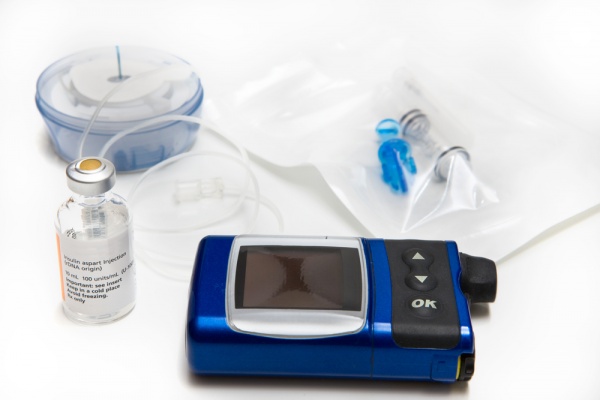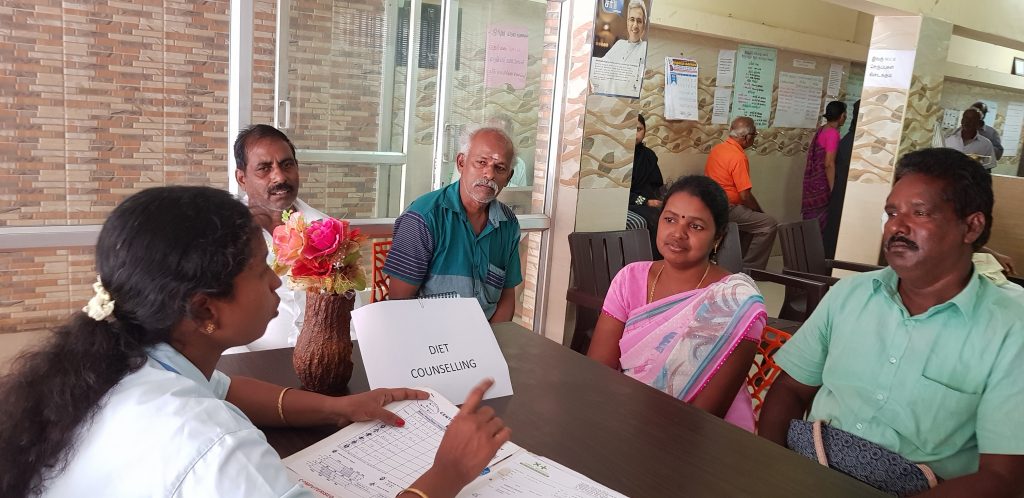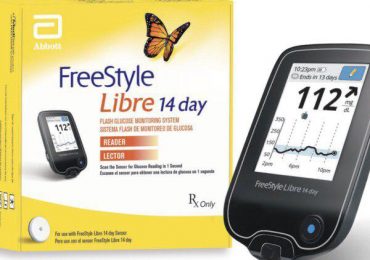- Diabetic foot ulcers of varying degrees – with our dedicated team work, we provide best possible care to cure the foot ulcers. Good control of diabetes combined with efficient surgical management helps to save the limbs, minimising amputation.
- Control of high sugar
- All medical conditions e.g. Infectious diseases, systemic disorders, immune disorders.
- 17 beds including 3 Intensive Care Unit beds, 2 Air Conditioned rooms, 6 for Individual rooms, 6 for common ward.
All Emergency services related to Diabetes and related disorders
‘DKA’ – When there is absolute deficiency in insulin as happens in Type 1 diabetes leads to excess formation of blood ketones. These patients may go for coma early.
‘Nonketotic coma’ – Increase in blood sugar in very high ranges like more than 500mg%, presenting with dehydration. May be associated with serious outcomes when untreated.
Due to overt diabetes or uncontrolled diabetes for long time
Blood pressure more than 200 mmHg presenting with involvement of any one or combination of damage of heart, kidneys, brain or Aorta.
Also known as Fever of unknown origin (FUO), refers to a condition in which the patient has an elevated temperature (fever) but despite investigations by a physician no explanation has been found.
Sudden worsening in Asthmatics leading to severe difficulty in breathing. The decrease in Oxygen is so severe that they need admission and supportive therapy
Is when the heart is unable to pump sufficiently to maintain blood flow to meet the body’s needs. Some patients who already have Heart disease experience sudden worsening.
Special services offered when the patients are inside the hospital as inpatients
The severe pain happens in uncontrolled Diabetes. It is due to damage of peripheral nerves by prolonged high sugar. When pain becomes intolerable, they may need admission to control high blood sugar. Apart from that they may need close monitoring while giving drugs to control pain
There are now sensors which can record glucose in the body without the prick or pain. Ambulatory Glucose Monitoring by Abbott’s Libre Pro used in our hospital. It is technological breakthrough to visualise the fluctuations in glucose and to address the gap in lifestyle modification, medications, insulin therapy. It can be used in children with Type 1 Diabetes, Pregnant women and also in other Type 2 diabetic who are yet to achieve glycaemic control. It bridges the gap in Home glucose monitoring and HbA1c.
A most important condition in mother’s life to prevent diabetes in future for both the conceived mother as well as future child. Achieving the best control of high sugar during pregnancy is possible nowadays.
Continuous Glucose Monitoring
There are now sensors which can record glucose in the body without the prick or pain. Ambulatory Glucose Monitoring by Abbott’s Libre Pro used in our hospital. It is technological breakthrough to visualise the fluctuations in glucose and to address the gap in lifestyle modification, medications, insulin therapy. It can be used in children with Type 1 Diabetes, Pregnant women and also in other Type 2 diabetic who are yet to achieve glycaemic control. It bridges the gap in Home glucose monitoring and HbA1c.

Insulin Pump Therapy
An insulin pump provides continuous delivery of short acting insulin all day long. The insulin pump substitutes the need for long acting insulin. A pump also replaces the need for multiple daily injections with a continuous insulin infusion, and also helps to improve your blood sugar levels.
The pump, which is about the size of a smartphone or deck of cards, is worn on the outside of your body and delivers insulin through a tube (catheter), connected to a thin cannula, placed into the layer of fat under your skin, typically around your stomach area
Many pumps connect wirelessly with blood glucose meters, which measure blood sugar levels using a drop of blood from your fingertip. Some pumps connect wirelessly with continuous glucose monitoring devices, which are inserted under the skin and monitor blood sugar levels all day long. Talk to your health care provider about which pump is right for you. Most insurance companies cover insulin pump therapy with variable out-of-pocket expenses.





